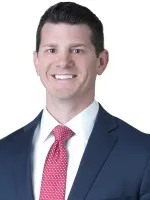Tennessee became the first U.S. state to enact legislation safeguarding musicians from artificial, computer-generated content capable of realistically replicating the artist’s vocal attributes. The legislation, formally titled the Ensuring Likeness Voice and Image Security Act (ELVIS Act), was unanimously approved by the Tennessee legislature and signed into law by Governor Bill Lee on March 21, 2024. The ELVIS Act will go into effect on July 1, 2024.
The ELVIS Act is in response to viral songs created by artificial intelligence that effectively mimic, if not nearly recreate, an artist’s unique voice and sounds. The quality of the mimicking can range from passable and believable, to indistinguishable by audiences and artists alike. The legislation garnered support from country music artist Luke Bryan, who also attended the bill’s signing ceremony. Bryan spoke about how he has, at times, been unable to distinguish his own voice from a deepfake, AI recreation. Home to the Grand Ole Opry, Beale Street, and some of the world’s most celebrated musicians, Tennessee is ripe for this first-of-its-kind legislation. Gov. Lee’s office emphasized the economic importance of the music industry. According to a press release, Tennessee’s music industry supports more than 61,617 jobs across the state, contributes $5.8 billion to its GDP, and fills more than 4,500 music venues.
The ELVIS Act does not create an entirely new statute, instead it amends what was previously termed the Personal Rights Protection Act of 1984 by adding “voice” as a protected property right for every individual. The other existing property rights included in the 1984 act are the rights to a person’s name, photograph, or likeness. The ELVIS Act, which amends the laws codified under T.C.A. § 47-25-1101 et. seq., provides each individual with a private cause of action to sue third parties who knowingly use the individual’s name, photograph, voice, or likeness without authorization. In addition, the law also subjects the unauthorized user to prosecution for a Class A misdemeanor.
The ELVIS Act also expands the reach of the private cause of action and Class A misdemeanors to take aim at the infringing content providers that create, and the platforms that host, the infringing content. Additionally, the ELVIS Act also encompasses any individual or entity that knowingly distributes, transmits, or otherwise makes the infringing content available, as well as any individual or entity that distributes, transmits, or makes available the software, tool, or other technology which has the primary purpose of producing the infringing content. The private cause of action is also available to any entity or other individual that has an exclusive license to distribute sound recordings that capture an individual’s audio performances.
The nuances here are significant: the statute is limited to actors that “knowingly” or “with knowledge” use an individual’s readily identifiable name, photograph, voice, or likeness without authorization and the software providers whose software’s “primary purpose” is the production of the individual’s name, photograph, voice, or likeness without authorization (emphasis added). If the bad actor is truly unaware or even reckless with respect to the infringement, or the infringing content is not reproducing a readily identifiable name, photograph, voice, or likeness, or the software’s ability to create the infringing content is tangential or even secondary to some other purpose, there is potentially no private cause of action or ability to prosecute a Class A misdemeanor.
While the lasting impact of the ELVIS Act, including whether it offers any meaningful protection in light of its high bars, remains to be seen, it is clear that a state government can take some action, even if symbolic, to curb what some states may consider as the most threatening effects of the rise of generative AI software – the fact that humans cannot sometimes tell the difference between what is real and what is artificial.
Anthony A. Laurentano, Johnathan H. Taylor, Joseph "Joe" Damon, Leslie Green, Jackson Parese, Marc Jenkins, Michael J. Halaiko, Esq., CIPP/E, Alexandra P. Moylan, Esq., CIPP/US, Richard B. Levin, Kevin Tran, and Bobby Wenner also contributed to this article








 />i
/>i

